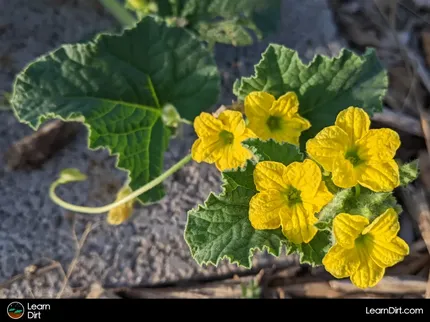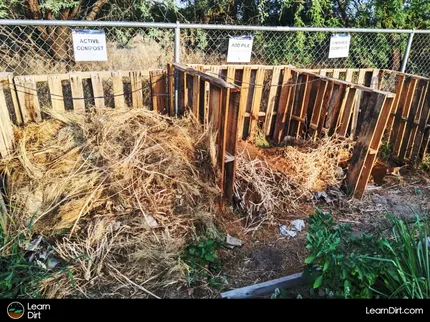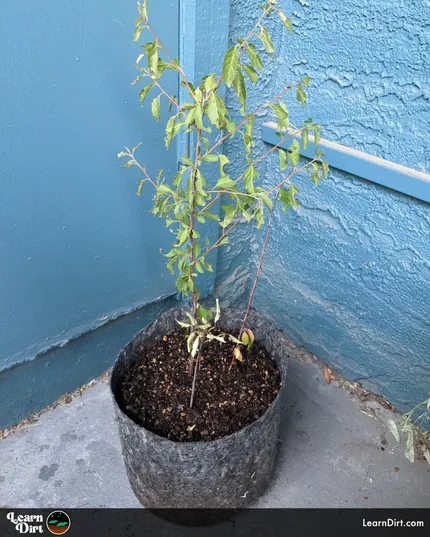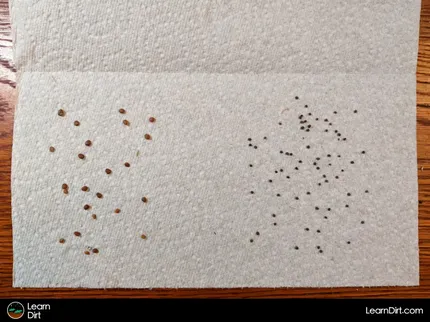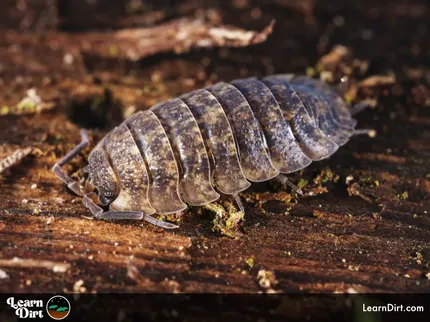Table of Contents
- What Are Hornworms?
- Understanding Hornworms
- How to Prevent Hornworms
- Hornworm Detection
- Hornworm Control
- Frequently Asked Questions
- Final Thoughts...
* Our articles never contain AI-generated slop *
Notably, hornworms feed on plants in the solanaceae family - nightshades which are commonly grown by gardeners. Because of this, you'll likely cross paths with them sooner or later if you grow your own food.
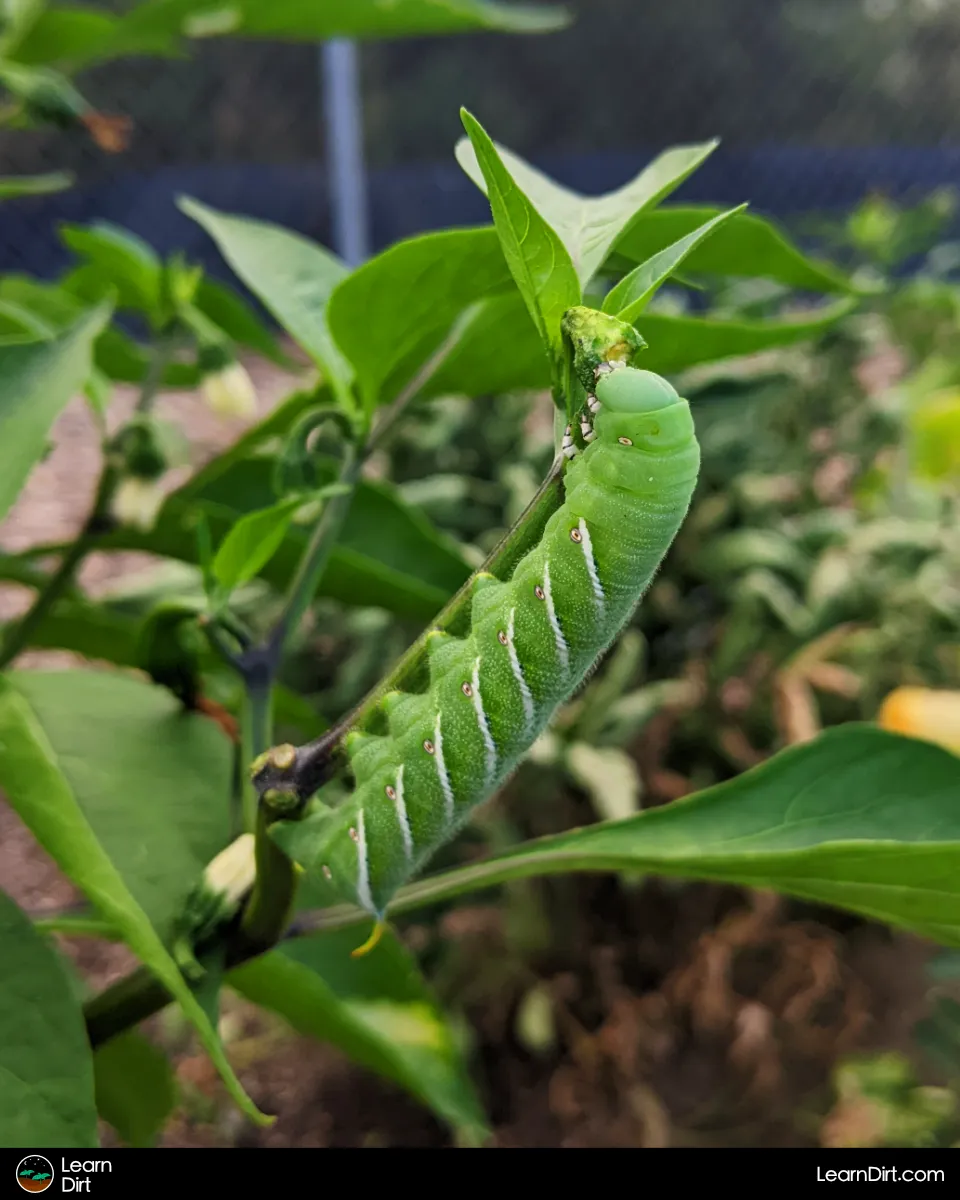
What Are Hornworms?
Hornworms are the caterpillar forms of sphinx moths and hawx moths in the family Sphingidae.
While there are some 1,500 species in the Sphingidae family worldwide, only a few dozen of these are commonly referred to as "hornworms."
Disclaimer: This post may contain affiliate links. Refer to the privacy policy for more information.
Here's a list of the most common hornworm species yau're liable to encounter in your garden, and the associated moths that they turn into:
- Tomato Hornworm - Five-spotted Hawkmoth
- Tobacco Hornworm - Carolina Sphinx Moth
- White-lined Sphinx Hornworm - White-lined Sphinx Moth
- Elm Sphinx Hornworm - Four-horned Sphinx Moth
- Pandorus Sphinx Hornworm - Pandorus Sphinx Moth
- Laurel Sphinx Hornworm - Laurel Sphinx Moth
Understanding Hornworms
To deal with hornworms, you've got to think like a hornworm!
Let's get acquainted with these tomato-munchers so we know a bit more about what we're dealing with.
Tomato hornworms (Manduca quinquemaculata) are large green caterpillars with distinctive horn-like protrusions on their behinds. Tomato hornworms are one specific species of hornworm, for which there are identifying features that separate them from tobacco hornworms and others.
You probably know about these critters 'cause they can devour swaths of tomato foliage seemingly overnight. Maybe you're even dealing with that as we speak.
Hornworms have the overpowered ability of preventing me from making myself a tasty BLT, which is a big ol' bummer, man.
Join The Grower's Community
Your space to connect, learn, and belong 🌱
Check It Out!
While hornworms may seem like a real problem, remember that they are part of a complex ecosystem!
Instead of resorting to toxic pesticides or wasting all day plucking them off by hand, let's think more strategically than that.
If we can foster well-balanced and harmonious garden ecosystems, our gardens will naturally keep hornworm populations in check without the need for intervention.
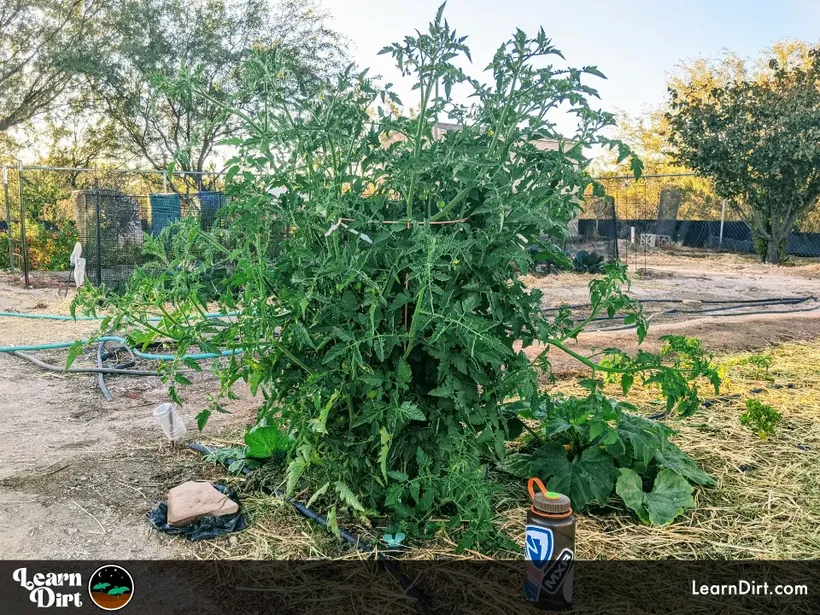
How to Prevent Hornworms
Companion Planting
Borage to the Rescue!
Borage (Borago officinalis) is a plant that every gardener should know. Of it's numerous benefits, hornworm deterrance is one great reason for you to get acquainted with this plant.
Borage has a scent that can act as a natural repellant for hornworm caterpillars.
Planting borage around your tomatoes can help to create a natural barrier than may keep the hornworms at bay.
Many pollinators and beneficial insects are also attracted to borage flowers, which makes it great for improving your garden ecosystem health and diversity.
Plus, borage has the added benefit of being an amazingly under-utilized culinary herb!
Plant Health
Ecosystem Balance
If we're looking to shepherd a balanced ecosystem, attracting beneficials which prey on hornworms should be a primary focus of our strategy.
Rather than resorting to toxic pesticides or ridiculously laborious hand-picking, we can lean on a balanced ecosystem to keep hornworms in check naturally
If your focus is on building healthy soil, fostering biodiversity, and creating habitat for beneficial insects and birds, you can set yoruself up for a thriving garden ecosystem that naturally keeps pest populations in check.
Hornworm Predators
Maintaining a diverse and balanced garden ecosystem is a key for long-term hornworm management. Many predators will happily take care of your hornworm problems if you oncourage their presence in your garden.
Encourage biodiversity by incorporating a variety of plant species throughout your garden.
Garden diversity attracts a wide range of beneficial insects and critters. Ladybugs, lacewings, and parasitic wasps are all natural enemies of hornworms. A diverse garden will help attract these helpers.
Consider planting companion flowers like marigolds, dill, and parsley near your tomatoes.
This stuff not only adds to your garden aesthetic, but also attracts beneficial bugs, many of which will actively hunt hornworms.
Birds
Birds in particular are voracious hunters of hornworms, and can help keep their populations in check.
To entice these friends to help you in your garden, think about setting up bird baths or water sources, birdhouses, and planting hedges or trees that offer shelter and nesting sites.
If you have cats which aren't part of your garden rodent deterrant strategy, consider keeping them indoors or out of the garden. Cats can decimate local bird populations which may throw your garden ecosystem out of balance.
if you're using netting to protect your tomatoes, make sure you choose bird-friendly netting that doesn't pose a risk of entangling birds.
Create a bird-friendly environment, and you'll have a great pest management team that will natural predate hornworms. Let nature to handle the task for you!
Dig Cool Merch?
Keep our garden allies safe, and maintain a harmonious ecosystem. Birds have a big part to play in balancing hornworm and other pest populations!
Braconid Wasps
Braconids are tiny parasitic wasps which lay their eggs on harnworms. After hatching, the larval wasps consume the hornworm before going on to parasitize more pests in your garden as the cycle repeats.
Hornworm Detection
Hornworm Control
Frequently Asked Questions
Can Chickens Eat Hornworms?
Tomatoes and other nightshades contain solanine, a toxin that chickens shouldn't eat. Solanine accumulates in hornworms as they eat tomato leaves, so try to keep your chickens away from your tomato plants if they've got hornworms.
While hornworm caterpillars can make great food for chickens, it's best to avoid feeding your chickens hornworms which have been eating tomatoes.
If you decide to feed hornworms to your chickens, be sure the hornworms are eating a safe diet which does not include nightshades.
Final Thoughts...
Remember that the garden is all about balance.
If you remove all the hornworms from your plants, you've taken away the meals for birds and lizards which would have encouraged them to stick around.
Instead of attacking pests directly and risking triggering the common backfiring mechanisms in complex systems which are meant to maintain equilibrium, work with the system as a whole.
Shepherd and foster balance, making slow gradual changes that bring harmony to the ecosystem.
Watch the effects of small changes ripple across the whole garden ecosystem and beyond, and consider carefully and strategically the choices you make which alter that balance.
Resist any urge to be reactionary, as many garden issues arise from overreactions to small problems. A couple pests or nutrient issues have gardeners reaching for toxic bottles of synthetics, which invariably make the entire garden worse and compound their problems. Don't be that person.
Rather, exercise patience and wisdom, carefully considering the ways in which your actions affect the whole system.
Remember that nature holds the keys to harmonious coexistence in our gardens. Seek to immitate nature the best you can and learn her ways.
Gardening is about living increasingly in balance with the natural world. Letting go and going with the flow, rather than clawing and fighting against nature to get your way.
Through companion planting, attracting beneficials, and nurturing biodiversity, we can help create resilient ecosystems. Ones which are naturally able to handle the challenges posed by hornworms.
Happy gardening, and may your ecosystems thrive!
Looking for ways to control other garden pests naturally? Check out the full guide here.
That's all for now, thanks for reading!
If you have any questions, comments, or would like to connect with fellow gardeners, head on over to the forum and post there.

![Black Dirt Live Again [Blue]](/media/product_images/black-dirt-live-again-[blue]_shirt_260x260.png)


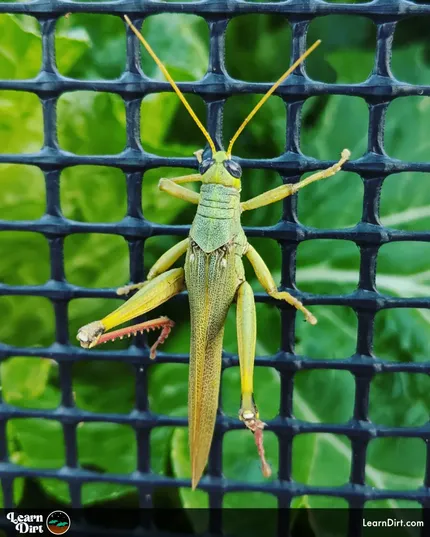


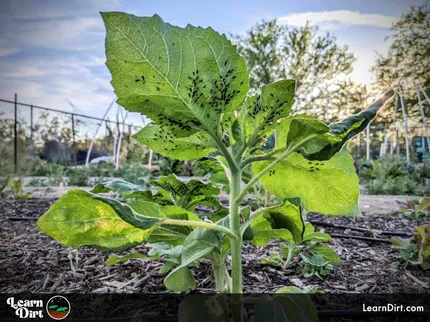



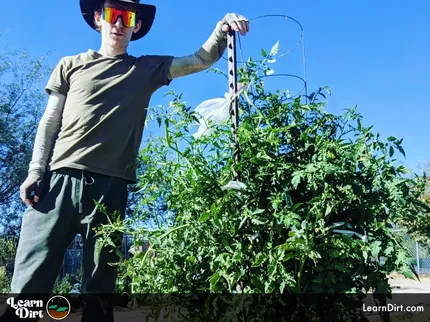
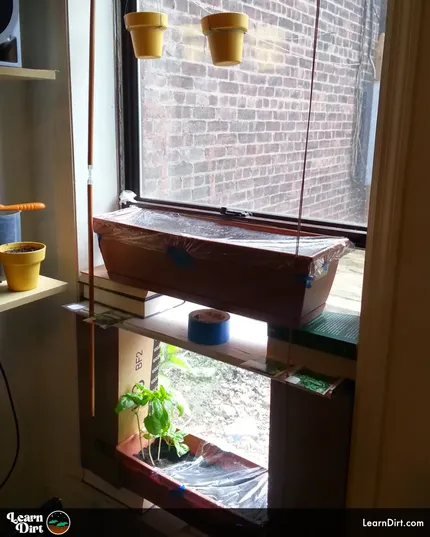



![Black Dirt Live Again [Purple] Sticker](/media/product_images/black-dirt-live-again-[purple]_sticker_260x260.png)
![Don't Till Away Your Carbon [Taffy] Sticker](/media/product_images/dont-till-away-your-carbon-[taffy]_sticker_260x260.png)

